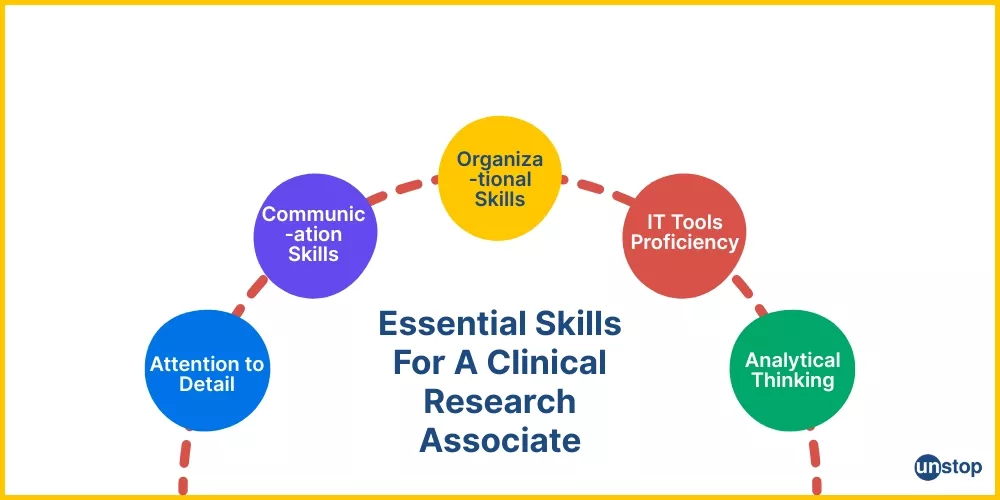Embarking on a clinical research career means combining scientific rigor, regulatory awareness, technological fluency, and strong communication skills. Whether you’re a Clinical Research Associate (CRA), Coordinator (CRC), Data Manager, or Regulatory Affairs specialist, here’s what will help you stand out:
1. Scientific & Technical Expertise
A deep understanding of clinical trial design, pharmacology, biostatistics, and research methodologies is foundational. Familiarity with Good Clinical Practice (GCP), ethical standards, and disease biology is essential for integrity in research.
2. Regulatory Acumen & Ethical Integrity
Knowledge of ICH-GCP guidelines and local/international regulatory requirements (e.g., FDA, EMA) is non-negotiable. Upholding ethical conduct, participant safety, and informed consent is paramount.
3. Data Management & Analytical Skills
Proficiency in Electronic Data Capture (EDC) systems ensures accurate and efficient trial data collection. You should also be skilled in basic statistical analysis and ensuring data quality.
4. Communication & Interpersonal Skills
Clear, compelling writing and verbal communication are vital—for reports, publications, stakeholder updates, and participant interactions alike. Building strong collaborations with multidisciplinary teams and sponsors is equally crucial.
5. Attention to Detail & Project Management
Clinical trials demand precision: from documentation to protocol adherence. Coupled with that is the ability to juggle deadlines, budgets, resource allocation, and deliverables effectively.
6. Critical Thinking & Problem-Solving
Unexpected challenges—from patient recruitment issues to regulatory changes—are commonplace. Strong analytical and problem-solving abilities help maintain trial integrity and momentum.
7. Adaptability & Tech-Savviness
Clinical research is evolving rapidly—with new tools, regulations, and methods. Being tech-savvy (beyond basic software to tools like electronic informed consent and data capture systems) and adaptable keeps you ahead.
8. Leadership, Collaboration & Managing Up
Leadership isn’t just for managers. Knowing how to “manage up”—communicate effectively with supervisors—and collaborate proactively boosts team efficiency and project outcomes.
9. Lifelong Learning & AI Literacy
With the increasing adoption of AI in pharma (e.g., J&J and Merck offering AI training) blending traditional expertise with AI skills—such as prompt engineering and digital literacy—is becoming essential.
Bringing It Together: CareerInPharma Perspective
At CareerInPharma, we understand that excelling in clinical research demands a blend of hard skills and soft skills. Our training programs emphasize:
- Practical knowledge of scientific methods, protocols, and ethical conduct.
- Regulatory mastery through GCP and real-world case studies.
- Hands-on experience with EDC systems and data management.
- Communication training for clear reporting and teamwork.
- Adaptability modules covering new technologies like AI tools.
Final Thoughts
Clinical research careers succeed on the backbone of scientific rigor, regulatory integrity, sharp analytical thinking, effective communication, resilience, and constant learning. By cultivating these areas, you’ll be well-equipped to navigate and lead in this impactful field.
Let me know if you’d like help crafting content on training programs or spotlighting specific CareerInPharma offerings!

